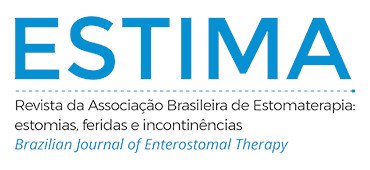CHEMICAL AND PHARMACOLOGICAL PROPERTIES OF THE GENUS COPAIFERA IN THE TREATMENT OF INJURIES/WOUNDS: INTEGRATIVE REVIEW
Abstract
Objective: To identify chemical and pharmacological properties of Copaifera in the treatment of injuries and wounds. Method: Integrative literature review conducted in the LILACS, MEDLINE, PubMed, Taylor & Francis and Scopus databases in January 2022, using the search strategy: “Chemical Properties” AND “Copaifera” AND “Wounds and Injuries” and “Pharmacology” AND “Copaifera” AND “Wounds and Injuries.” Original articles, full text, identified according to level of evidence, written in Portuguese, English or Spanish, were included. Results: In the primary search 261 articles were found. After systematized selection, 12 studies were selected for qualitative analysis. Species of the genus Copaifera have pharmacological properties favorable for wound treatment: control of inflammatory pain, reduction of inflammatory reaction, tissue reepithelialization and repair, angiogenesis, wound retraction and scar remodeling. Among the chemical properties associated with the treatment of injuries, the presence of bioactive compounds stand out: diterpenes, 3-hydroxy-copalic, sesquiterpenes, kolavic-15-methyl ester. Among the tested diterpenes, kaurenoic and copalic acids showed significant hemolytic activities. Only copalic acid and hardwickiic acid inhibited nitric oxide production in lipopolysaccharide-activated macrophages. Conclusion: Plants of the genus Copaifera have chemical and pharmacological properties favorable for the treatment of injuries and wounds.
Downloads
Metrics
References
Aquino VHR. Desenvolvimento de gel vaginal fitoterápico baseado em manteiga de Astrocaryum murumuru Mart contendo óleorresina de Copaifera reticulata Ducke para o tratamento de vaginose [dissertação]. Santarém: Universidade Federal do Oeste do Pará; 2019. [cited 2023 Jan 29]. Available at: https://repositorio.ufopa.edu.br/jspui/handle/123456789/484
Cavalcante JW, Cavalcante V, Bieski I. Conhecimento tradicional e etnofarmacológico da planta medicinal copaíba (Copaifera langsdorffii Desf.). Biodiversidade 2017;16(2):123-32.
Scaramuzzi IAB. Modos de orientação na floresta e as formas do entender no extrativismo comercial da castanha entre quilombolas do Alto Trombetas, Oriximiná/PA. Rev Antropol 2020;63(1):143-63. https://doi.org/10.11606/2179-0892.ra.2020.168623
Lima CAS, Violante IMP, Alves WKS, Carvalho FT, Silva Dias N, Anjos TR, et al. Atualizações sobre as propriedades medicinais do óleo de copaíba (Copaifera spp.): Uma revisão bibliográfica. Uniciências 2021;25(2):100-6. https://doi.org/10.17921/1415-5141.2021v25n2p100-106
Costa AS, Lameira OA. Estudo fitoquímico do oleorresina extraído da Copaifera reticulata Ducke (Leguminosae-Caesalpinioidade) em uma área de manejo sustentável. Res Soc Dev 2021;10(16):e154101622305. https://doi.org/10.33448/rsd-v10i16.22305
Bernardino LL, Matsubara MGS. Construção de um instrumento para avaliação do conhecimento sobre ferida neoplásica maligna. Rev Bras Cancerol 2022;68(1):e-061377. https://doi.org/10.32635/2176-9745.RBC.2022v68n1.1377
Galvão AMN, Silva ZP, Barbosa APF, Rodrigues CFS. Efeito da estimulação elétrica na cicatrização de feridas cutâneas em Wistar: Existe protocolo a ser seguido? (Revisão de estudos experimentais). Res Soc Dev 2022;11(1):e53311125295. https://doi.org/10.33448/rsd-v11i1.25295
Silva KOG, Nascimento GMAP, Oliveira KS, Oliveira JRS, Silva JÍM. A influência da nicotina no processo de cicatrização de feridas. Braz J Dev 2021;7(8):80403-10. https://doi.org/10.34117/bjdv7n8-313
Gois TS, Jesus CVF, Santos RJ, Oliveira FS, Feitosa L, Santana MF, et al. Fisiopatologia da cicatrização em pacientes portadores de diabetes mellitus. Braz J Heal Rev 2021;4(4):14438-52. https://doi.org/10.34119/bjhrv4n4-006
Costa IM, Almeida JD, Costa KM, Jardim LFS, Rosa MJS, Pifano PP, et al. Uso de análogos de GLP-1 no tratamento da obesidade: Uma revisão narrativa. Braz J Heal Rev 2021;4(2):4236-47. https://doi.org/10.34119/bjhrv4n2-022
Mendes KDS, Silveira R, Galvão CM. Revisão integrativa: Método de pesquisa para a incorporação de evidências na saúde e na enfermagem. Texto Contexto Enferm 2008;17(4):758-64. https://doi.org/10.1590/S0104-07072008000400018
Richardson WS, Wilson MC, Nishikawa J, Hayward RS. The well-built clinical question: a key to evidence-based decisions. ACP J Club 1995;123(3):A12-3.
Galvão CM. Níveis de evidência. Acta Paul Enferm 2006;19(2):5. https://doi.org/10.1590/S0103-21002006000200001
Dias-da-Silva MA, Pereira AC, Marin MCC, Salgado MAC. The influence of topic and systemic administration of copaiba oil on the alveolar wound healing after tooth extraction in rats. J Clin Exp Dent 2013;5(4):e169-73. https://doi.org/10.4317/jced.51104
Vargas FS, Almeida PDO, Aranha ESP, Boleti APA, Newton P, Vasconcellos MC, et al. Biological activities and cytotoxicity of diterpenes from Copaifera spp. oleoresins. Molecules. 2015;20(4):6194-210. https://doi.org/10.3390/molecules20046194
Gushiken LFS, Hussni CA, Bastos JK, Rozza AL, Beserra FP, Vieira AJ, et al. Skin wound healing potential and mechanisms of the hydroalcoholic extract of leaves and oleoresin of Copaifera langsdorffii Desf. Kuntze in rats. Evidence-Based Complement Altern Med 2017;2017:6589270. https://doi.org/10.1155/2017/6589270
Amorim JL, Figueiredo JB, Amaral ACF, Barros EGO, Palmero C, Palantinos MA, et al. Wound healing properties of Copaifera paupera in diabetic mice. PLoS One 2017;12(10):e0187380. https://doi.org/10.1371/journal.pone.0187380
Teixeira FB, Silva RB, Lameira OA, Webber LP, D’Almeida Couto RS, Martins MD, et al. Copaiba oil-resin (Copaifera reticulata Ducke) modulates the inflammation in a model of injury to rats’ tongues. BMC Complement Altern Med. 2017;17(1):313. https://doi.org/10.1186/s12906-017-1820-2
Senedese JM, Rinaldi-Neto F, Furtado RA, Nicollela HD, Souza LDR, Ribeiro AB, et al. Chemopreventive role of Copaifera reticulata Ducke oleoresin in colon carcinogenesis. Biomed Pharmacother. 2019;111:331-7. https://doi.org/10.1016/j.biopha.2018.12.091
Becker G, Brusco I, Casoti R, Marchiori MCL, Cruz L, Trevisan G, et al. Copaiba oleoresin has topical antinociceptive activity in a UVB radiation-induced skin-burn model in mice. J Ethnopharmacol. 2020;250:112476. https://doi.org/10.1016/j.jep.2019.112476
Alvarenga MOP, Bittencourt LO, Mendes PFS, Ribeiro JT, Lameira OA, Monteiro MC, et al. Safety and effectiveness of copaiba oleoresin (C. reticulata Ducke) on inflammation and tissue repair of oral wounds in rats. Int J Mol Sci. 2020;21(10):3568. https://doi.org/10.3390/ijms21103568
Kauer DP, Alonso JM, Gushiken LFS, Lemos M, Padovani CR, Rodrigues CA, et al. Experimental skin wound treatment with Copaifera langsdorffii Desf Kuntze (Leguminosae) extract and oil-resin in horses. Braz J Vet Res Anim Sci. 2020;57(3):e166095. https://doi.org/10.11606/issn.1678-4456.bjvras.2020.166095
Waibel J, Patel H, Cull E, Sidhu R, Lupatini R. Prospective, randomized, double-blind, placebo-controlled study on efficacy of copaiba oil in silicone-based gel to reduce scar formation. Dermatol Ther (Heidelb). 2021;11(6):2195-205. https://doi.org/10.1007/s13555-021-00634-5
Almeida Júnior JS, Silva ÉBS, Moraes TMP, Kasper AAM, Sartoratto A, Baratto LC, et al. Anti-inflammatory potential of the oleoresin from the amazonian tree Copaifera reticulata with an unusual chemical composition in rats. Vet Sci. 2021;8(12):320. https://doi.org/10.3390/vetsci8120320
Paranhos SB, Ferreira ES, Canelas CAA, Paz SPA, Passos MF, Costa CEF, et al. Chitosan membrane containing copaiba oil (Copaifera spp.) for skin wound treatment. Polymers (Basel). 2021;14(1):35. https://doi.org/10.3390/polym14010035
Veiga Junior VF, Pinto AC. O gênero Copaifera L. Quim Nova 2002;25(2):273-86. https://doi.org/10.1590/S0100-40422002000200016
Lisboa AJM, Queiroz FJG, Giotto AC, Santos JF, Silva KC. Análises fotoquímicas de Copaifera langsdorffii DESF. Rev Divulg Científica Sena Aires 2018;7(3):208-13.
Pires DJ, Chaves GHB, Tassara KR, Vieira CS, Ferreira LF. O uso das práticas integrativas e complementares (PICS) na pandemia da COVID-19: Uma revisão de literatura. An Semin Reg Extensão Univ Região Centro-Oeste (SEREX) 2021;(5):253-4.
Miranda DHS, Muniz JWC, Silva DP. Estudo comparativo da ação anti-inflamatória do óleo-resina da Copaifera reticulata em modelos farmacológicos experimentais em camundongos. Fisioter Bras 2016;17(4):305-12. https://doi.org/10.33233/fb.v17i4.503
Martini CAN, Scapini JGS, Collaço L, Matsubara A, Veiga VFDA. Análise comparativa dos efeitos do óleo-resina de Copaifera multijuga e da nitrofurazona na cicatrização de ferida cutânea. Rev Col Bras Cir 2016;43:445-51. https://doi.org/10.1590/0100-69912016006006
Downloads
Published
How to Cite
Issue
Section
License
Copyright (c) 2023 Maria Neyze Martins Fernandes, Luis Fernando Reis Macedo, Vithoria Regia Teixeira Rodrigues, Emanuel Messias Silva Feitosa, Marcolino Ribeiro Silva, Rhuana Alves Moreira, Luis Rafael Leite Sampaio

This work is licensed under a Creative Commons Attribution 4.0 International License.

























